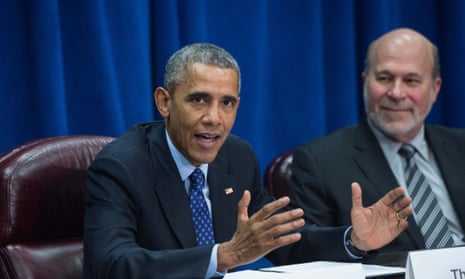After years of secrecy, the Trans-Pacific Partnership (TPP) agreement has finally been released to the public. The shadowy process and overreaching scope of the deal have sparked an international outcry; it’s been roundly condemned as an attack on worker’s rights, the environment, public health, small businesses and startups.
But perhaps the biggest concern is over the impact that it will have on the internet.
TPP is a legally binding pact negotiated between 12 countries, including the United States. Industry lobbyists and government bureaucrats huddled for months in closed-door meetings to draft and debate the deal while journalists, human rights advocates and tech experts were locked out. It can’t accurately be called a “trade deal”. Its 30 chapters and 6,194 pages cover a dizzying range of policy questions that have nothing to do with tariffs, imports or exports.
The final version of TPP confirms advocates’ worst fears. Thanks to, among other things, its dramatic expansion of copyright enforcement, the agreement poses a grave threat to our basic right to access information and express ourselves on the web, and could easily be abused to criminalize common online activities and enforce widespread internet censorship.
To fully grasp the impending trainwreck here, it’s important to understand that copyright laws have a profound effect on what internet users can see and do online. The US regime of copyright enforcement has been repeatedly co-opted by special interests to censor legitimate content from the web. Copyright laws have been used to attack LGBTQ websites, censor investigative journalism and scrub homemade videos from the net just because of the music in the background.
Many of the scariest scenes in the TPP script take place in the intellectual property chapter. This section exports the most draconian aspects of the United States’ broken copyright system and forces them onto the rest of the world, without requiring “fair use” provisions that are necessary to protect free speech.
One provision demands that TPP member countries enforce copyright terms 70 years after the death of the creator. This will keep an immeasurable amount of information, art and creativity locked away from the public domain for decades longer than necessary, and allow for governments and corporations to abuse copyright laws and censor content at will, since so much of what’s online will be subject to copyright for decades.
TPP even prescribes a mechanism for that censorship to occur. A section that can best be described as “Zombie-Sopa”, due to its similarity to the failed Stop Online Piracy Act, would require internet service providers (ISPs) to play “copyright cops” and create systems for hastily taking down internet content upon a copyright holder’s request, even without a court order.
It then entices ISPs to comply by rewarding them with legal immunity in the event that they “inadvertently” take down something they shouldn’t have. To put the nail in the coffin, the deal requires countries to enforce heavy-handed criminal sanctions and fines for copyright infringement that are wildly disproportionate to the actual damages done to copyright holders.
The TPP affects website owners too, and threatens online privacy by requiring countries to publish databases of real names and addresses associated with certain web domains. This is particularly dangerous for dissenting voices in repressive countries, but it will also leave many average website owners exposed to scammers, online harassers and trolls.
The corporate wish-list continues. A dangerously broad “trade secrets” section endangers whistleblowers and journalists by prescribing harsh penalties for anyone accessing or exposing corporate secrets (or wrongdoing) “through a computer network”. Another article vaguely criminalizes tinkering with, unlocking or modifying your phone or other devices you own.
The most shocking revelation in the finalized text isn’t in the intellectual property chapter itself, but in a provision that includes intellectual property enforcement in the troubling Investor State Dispute Settlement (ISDS) scheme. ISDS allows corporations to sue governments in secretive international tribunals if they feel that a nation’s local laws are “unfairly” limiting their ability to make money hand over fist.
In the shadow of a well-documented media blackout, so much of the discussion, criticism and organizing around TPP has happened over the web. It’s terrifying to think that this agreement, if ratified, will not only trample our rights, but could also fundamentally break the most powerful tool we have to raise awareness about the urgent issues of our time, expose the secrets of the corrupt and powerful, and amplify the voices of the millions struggling for a better world.
Fortunately, TPP is not yet a done deal. Before it becomes law it has to be ratified by each country’s lawmakers, including the US Congress. If you’re concerned about how TPP might affect the future of the internet, now might be a good time to use the internet to contact your representatives, while its still a free and open place.
